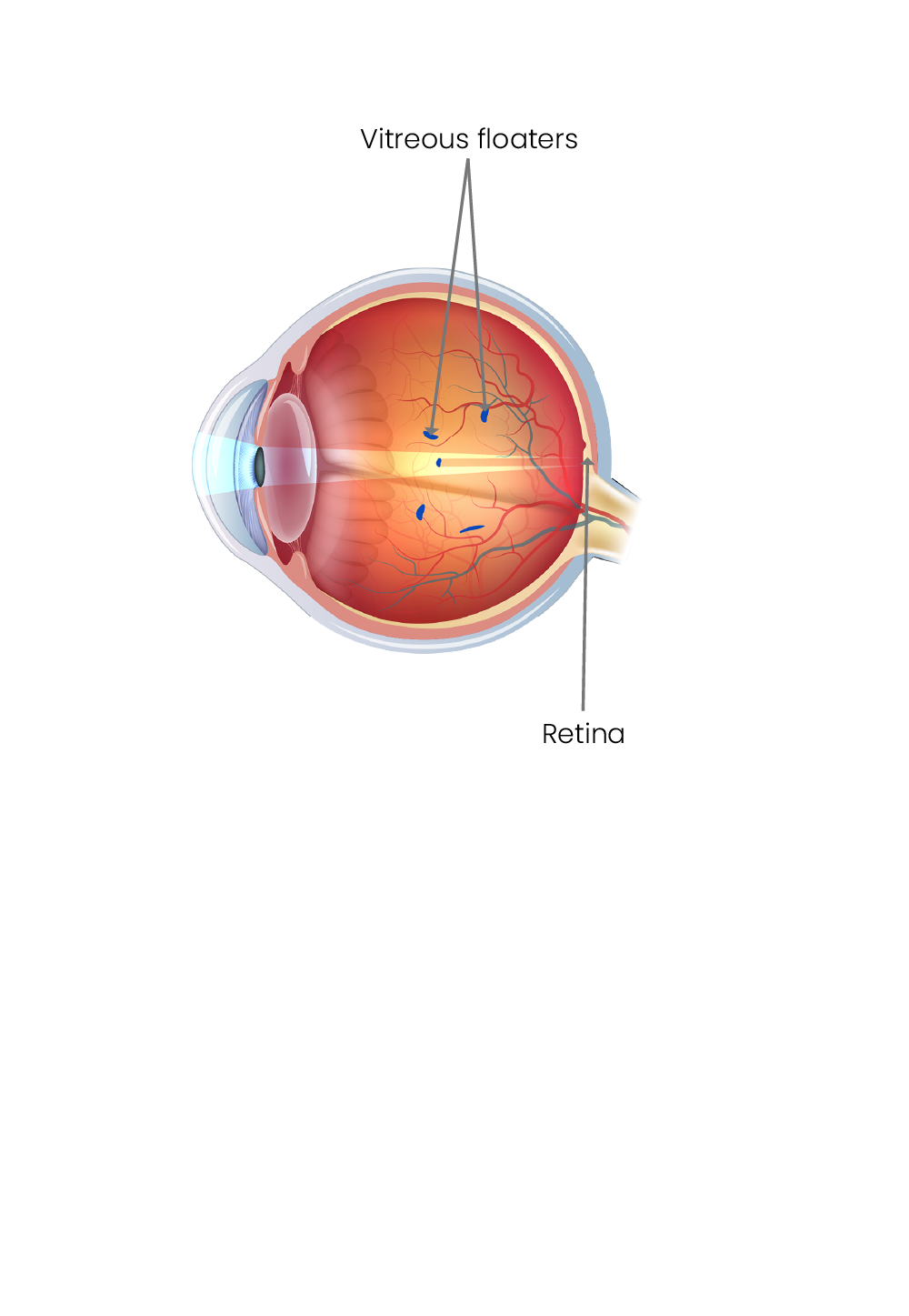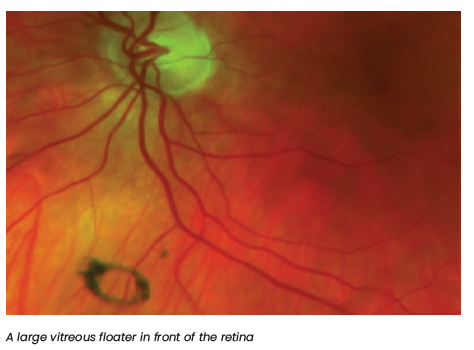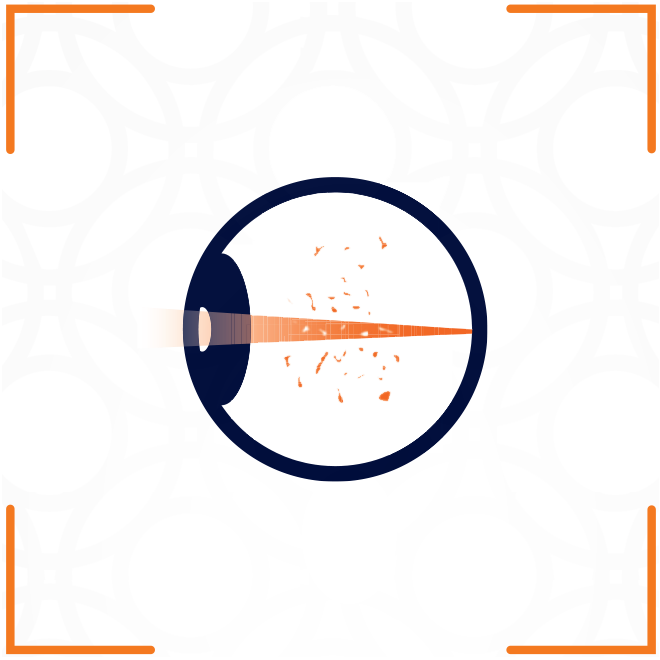What are flashes and floaters?
If you have ever looked at a bright sky or a white wall and noticed small specks or strands that appear to float in front of you, you have experienced eye floaters.
Most floaters are completely harmless and a natural byproduct of the aging process. However, if you suddenly notice an increase in the number or size of floaters, or they are accompanied by flashes streaks of light that appear to flash in front of your eyes it could indicate a problem.
Floaters occur when the normally gelatinous vitreous of the eye shrinks or thickens with advancing age. Clumps or strands of cells can form and float around in the vitreous, casting shadows on the retina that the eye perceives as objects drifting throughout the visual field. Floaters are especially noticeable against a plain or bright background.
The shrinking or thickening vitreous can also rub or pull on the retina. The pulling causes the retina to send electrical impulses to the brain; the brain perceives these as flashing or flickering lights that appear to streak across the visual field. These are known as flashes.

What are the symptoms of Flashes and Floaters?
Though occasional floaters are usually nothing to worry about, sometimes they are a warning sign of retinal detachment, a serious problem requiring immediate medical attention. Retinal detachment describes the retina being pulled or tugged out of its normal position along the inner back wall of the eye.
If you experience a sudden increase in new floaters, floaters accompanied by flashes, shadows in your peripheral vision or a gradual shadowing of vision from one side of your visual field (i.e., similar to a curtain being drawn), our retinal specialists encourage you to get screened by a doctor right away.
What causes flashes and floaters?
Most eye floaters are age-related that occur in the vitreous which fills the eye.
When we are born, the vitreous is more gel like and is attached strongly to the retina at several points. With normal eye ageing as we get older, the vitreous becomes liquid and this can cause floaters.
With further ageing, the vitreous eventually separates from the retina usually in middle age termed a posterior vitreous detachment. When this occurs patients can experience a sudden increase in floaters and also flashes in their vision.
As posterior vitreous detachment can be associated with retinal tears and retinal detachment, it is very important to have an urgent retinal examination with an optometrist or ophthalmologist within 24-48 hours to exclude these.
Other less common causes of floaters include eye inflammation and vitreous bleeding again emphasising the importance of early retinal examination.

How we treat flashes and floaters?
In most people, age related floaters come and go and dont need treatment. They will usually become less noticeable with time as they continue to break down and as the brain adapts to them.
In rare cases when many of these floaters interfere with vision and interfere with our daily activities a procedure called a vitrectomy can be performed to remove the vitreous gel and the floaters.
However, these symptoms can also indicate an acute retinal tear or retinal detachment which usually require urgent treatment with retinal laser or retinal surgery.
At the eye health centre, our eye specialists can assess your flashes and floaters and provide urgent treatment if needed.
Vitrectomy
Frequent or prominent floaters that obstruct vision and interfere with activities of daily living can be treated with a procedure called vitrectomy. During vitrectomy, the gel-like vitreous is removed from the eye and replaced with a gas bubble or another type of solution. Another option is to use a laser to vaporise groupings of floaters.
How we diagnose flashes and floaters?
Floaters and flashes most commonly affect middle-aged adults. They are also more common in individuals who are nearsighted or who have had cataract surgery, an eye injury or inflammation or swelling inside the eye. Diabetics are also slightly more likely to get floaters.
Flashes are sometimes caused by migraine headaches.
Do you have a question or concern about your eye health? To discuss your condition with an experienced ophthalmologist or optometrist, please contact The Eye Health Centre



